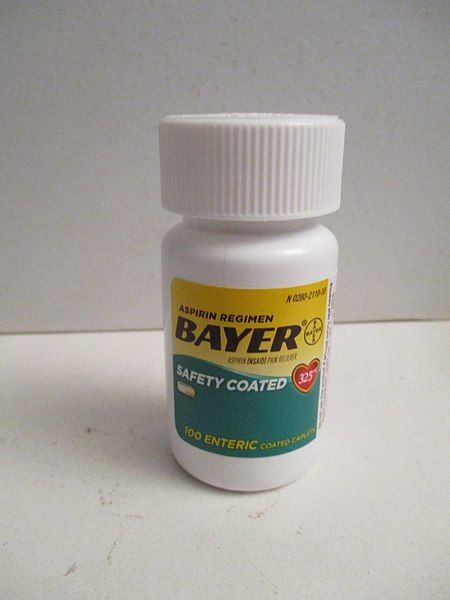Many people have known for a long time that Aspirin is something that doctors call a "miracle drug."
They say that the popular over-the-counter drug is great for managing heart health, but the truth is, there are actually some risks that people don't know about.
Usually your doctor or pharmacist is supposed to review the risks with you, or at the very least provide you with some information to go over yourself so you know what's going on, but how many of us actually take the time to read it.
Aspirin is usually safe, which is why a lot of us ignore the fact that there are potential side effects, but here's what you need to know about using it as a daily treatment.
Dr. Mark Fendrick is one of the many doctors who recommends Aspirin to his patients, "Aspirin is the one drug I would take to a desert island with me. It costs two cents a day and its benefits are amazing. And if it had no side effects at all, we could give it to everybody."
But he's quick to clarify that just because he thinks it's "amazing," that doesn't mean it's without it's risks.
"When you take aspirin, the level of stomach protection is decreased and you're more likely to bleed. Thus, people who take aspirin regularly -- even in a buffered or coated form -- will have roughly double the likelihood of having a perforated ulcer or bleeding in the GI tract," he explained.
"Relatively little attention is paid to this problem that kills more people in the U.S. each year than asthma or cervical cancer. What we need to do is focus less attention on finding more things that make aspirin look good, we have plenty of those, and think more about focusing on how to minimize risk."
Aspirin is a nonsteroidal anti-inflammatory drug (NSAID) and while it's very common and affordable, the fact of the matter is that it must be taken responsibly and should only be taken daily with your doctor's approval.
Daily Aspirin therapy has been found to reduce the risk of coronary heart disease by up to 28% in patients who have never had a heart attack or a stroke but were still considered high risk, but there the choice to take the medication should be carefully weighed.
Because Aspirin works to thin the blood, it can lead to bleeding in the brain and stomach, or even kidney failure. According to the FDA, has been known to mix poorly with certain prescription medications and even supplements. That's why it's so important to be open with your doctor about any and all supplements and vitamins before beginning a new regimen.
Also, it's important to note that while Aspirin can be a helpful preventative, it is usually not safe for those who have already had either a heart attack or stroke.
Source- FDA / WebMD / MayoClinic / RXlist




